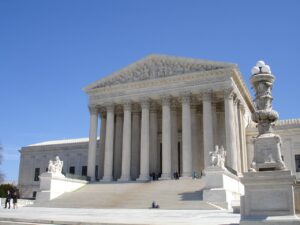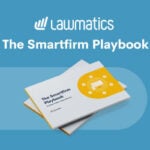Supreme Court Hears Oral Arguments On Realization Rule That Could Disrupt Current Tax Laws
Some observers have questioned why the Supreme Court even granted review in the first place.
 Yesterday, the Supreme Court justices heard oral arguments on Moore v. United States. In this case, the Court must decide whether the Mandatory Repatriation Tax (MRT) is unconstitutional. Many (including me) have stated that the decision could significantly impact tax law as we know it.
Yesterday, the Supreme Court justices heard oral arguments on Moore v. United States. In this case, the Court must decide whether the Mandatory Repatriation Tax (MRT) is unconstitutional. Many (including me) have stated that the decision could significantly impact tax law as we know it.
In Moore, the taxpayers were shareholders in a foreign corporation since 2005. While this corporation made a profit every year, the profits were reinvested in the business and so the Moores did not get any dividends. The MRT, passed in 2017 as part of the Tax Cuts and Jobs Act, is a one-time tax on prior year profits going back to 1986. As a result of the MRT, the Moores were forced to pay $14,729 and then sued the government for a refund.
Some have questioned why the Supreme Court even granted review in the first place. There is no circuit court conflict as no other appeals court has decided on this issue. The MRT affects a small group of people. And while $14,729 is a lot of money to the Moores, it is a relatively small amount for the federal government which deals with trillions of dollars. Finally, some justices cringe at tax law cases. Many have speculated that the court’s decision will either preemptively decide or hint at the constitutionality of a future tax on the value of an individual’s wealth.

The Smartfirm Playbook - Thriving In Today’s Legal Landscape
The issue in Moore is the constitutionality of the MRT when the Moores did not get any money from the foreign corporation they partially owned. In other words, their income was unrealized. The Court’s decision in Moore could provide either a concrete definition of a realization event or could scrap the realization requirement altogether.
In addition to the legal arguments from both parties, the Court will have to consider today’s economic and technological advances when making its decision. Most of the major realization cases were decided in the 1920s. Are the rationales made then still applicable in the 2020s? For example, most people today can buy and sell stock and get reliable stock information instantaneously through the internet. Would these advances warrant a change in the realization rule when it comes to stock transactions?
A broad realization requirement would ensure that taxpayers have the money to pay any taxes due. This can avoid the situation where the winner of the extremely valuable Honus Wagner baseball card was forced to immediately sell it in order to pay the resulting income tax. On the other hand, some people might exploit the realization rule to defer or avoid paying income taxes by not selling items that have appreciated in value. Wealthier people generally have enough financial security to time their asset sales to be tax efficient, but they will generally sell the asset at its highest value even if it means paying more taxes to do so.
If the Court eliminates the realization requirement from the legal definition of income, it put into question most of its earlier precedent decisions. Congress and the Treasury Department could issue new regulations that could expand their definition of income or gains to include when an asset appreciates in value. Also, the IRS and state tax agencies could update their audit procedures which could mean that tax auditors could take more aggressive positions on determining taxable income. Whether the government will be just as spirited about recognizing losses (and issuing tax refunds) when an asset depreciates in value is another question.
Sponsored

InterAction+ Brings Power Of CRM Software To Law Firms Of All Sizes

How to Achieve Quicker, More Valuable Case Settlements with Minimal Effort: A Guide for Personal Injury Lawyers

How Generative AI Is Disrupting Law Firm Billing Practices

LawPay Pro Offers Upgraded Time And Billing Essentials
The Court’s decision will need to address how assets will be valued for tax purposes if there is no realization rule. This was a concern addressed by Justice Thurgood Marshall when he decided Cottage Savings Association v. Commissioner:
In order to avoid the cumbersome, abrasive, and unpredictable administrative task of valuing assets annually to determine whether their value has appreciated or depreciated, § 1001(a) of the Code defers the tax consequences of a gain or loss in property until it is realized through the “sale or disposition of [the] property.” This rule serves administrative convenience because a change in the investment’s form or extent can be easily detected by a taxpayer or an administrative officer.
A third option is to uphold the MRT but narrow the scope of the ruling. An analysis of today’s oral arguments suggests that the justices are inclined to do just that. How the Court will do so is unknown, but this could also encourage litigation from taxpayers and the government in an attempt to test the boundaries of the new realization rule.
To satisfy the curiosity of those wondering about how the Court will view the wealth tax, the court should note that it is constitutionally required to decide cases and controversies. In other words, it does not issue advisory opinions. So it will deal with the wealth tax when it comes.
Most commentators seem to suggest that ruling in favor of the taxpayers would be the tax equivalent of overruling Roe v. Wade as it would create additional complexities and confusion in the already confusing tax laws. But changing or eliminating the realization rule will create further controversy regardless of how broadly or narrowly the court rules. But yesterday’s oral arguments suggest that the Court will only decide the case before them and not give any clues on future tax rulings.
Sponsored

The Smartfirm Playbook - Thriving In Today’s Legal Landscape

LawPay Pro Offers Upgraded Time And Billing Essentials
Steven Chung is a tax attorney in Los Angeles, California. He helps people with basic tax planning and resolve tax disputes. He is also sympathetic to people with large student loans. He can be reached via email at stevenchungatl@gmail.com. Or you can connect with him on Twitter (@stevenchung) and connect with him on LinkedIn.







